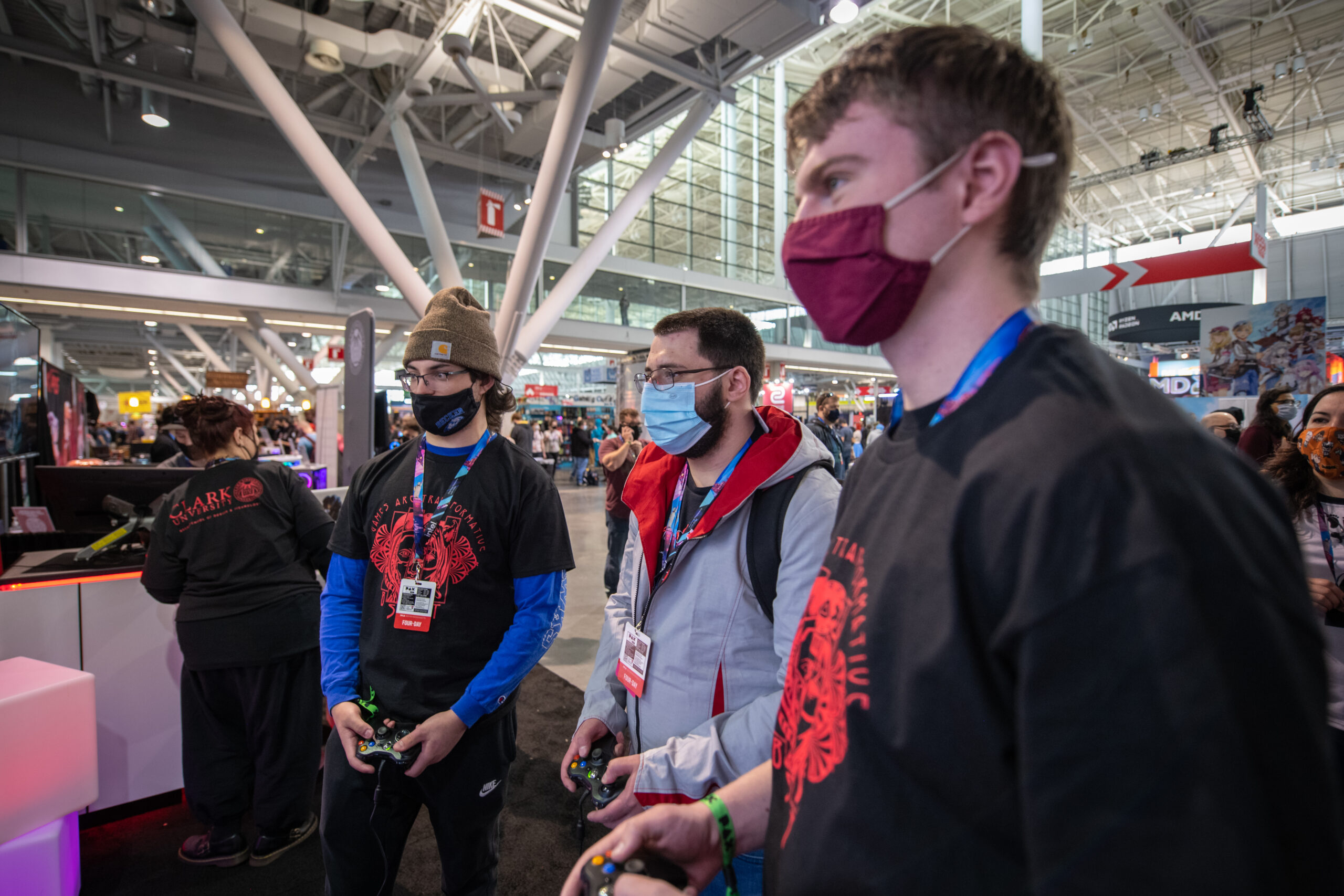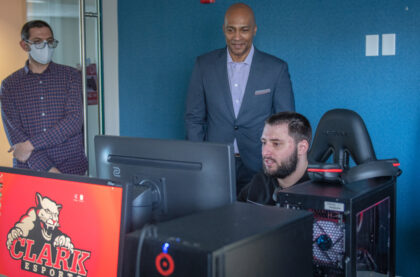Clark students get serious about the future of gaming

As a middle school student, Haylie Ingels ’22 began visiting websites like Johnnie’s Math Page to develop her math and problem-solving skills by playing a series of games.
“As a little kid, I thought I was playing whatever fun games I wanted, but I ended up learning. It took me a while to realize that,” she says. “Games helped me get through my early education.”
That experience is at the base of the Serious Game Project course taught by Professor Terrasa Ulm at Clark University’s Becker School of Design & Technology. Serious games are video games created for purposes beyond pure entertainment, such as academic instruction or professional training.
“Each year, the number of successful and impactful titles in the serious games domain increases,” says Ulm. “That is in part because of students who are both passionate and informed, which allows them to understand the inherent responsibility in developing targeted, transformative works.”
Ingels, who took Ulm’s course in the spring, says her emotional growth and development benefitted from serious games. Playing “Papo and Yo,” a narrative puzzle game exploring child abuse, and “Cozy Grove,” a game that explores grief and self-care, helped Ingels contemplate difficult topics and feelings.
She has become fascinated with the idea of games being deceptively educational. But finding the balance between making something instructive and engaging can be a challenge.
“Serious games are an incredible way to capture a player’s attention and create real-life effects in a way other forms of media can’t,” Ingels says.
Ulm is typically contacted by outside entities, ranging from the Massachusetts College of Pharmacy and Health Sciences to Old Sturbridge Village, which suggest topics that might be turned into games. Students then develop, demo, and revise games around these topics. The process connects students’ studies in interactive media with humanities and the social sciences, as serious games are often designed for health care, defense, education, politics, and emergency management, among other areas.
Ingels did pre-production work for serious games in Ulm’s course and completed an internship as a tools engineer at Mightier, which created a game that allows children to monitor their heart rate while they play, then coaches them in calming techniques to better manage their stress level. The aim is to build emotional strength for dealing with challenging situations.

Growing up, George Hall ’22 loved adventure and puzzle games like “Putt-Putt.” Those games made such an impact that he decided to pursue gaming as a career.
“I used to get frustrated because I would play an amazing game and it would end,” he says. “That’s exactly why I got into studying video games.”
During the serious games course, Hall worked on a game that inconspicuously taught safety concepts like taking notice of strangers at a playground or being careful near kitchen appliances.
“The idea was to make games kids could learn something from without traumatizing them,” Hall says. His game featured a virtual pop-up book with pages children can flip through.
Before landing at the Becker School, Hall spent 20 years in the Army, something he pursued because he wanted to be a criminal investigator. That idea was partially inspired by “Tex Murphy,” an adventure game about a private investigator.
“Adventure games inspire kids. They could become a doctor, or maybe even a game designer,” says Hall, who hopes to open a studio to develop educational games for children.
Ed Greig ’23 learned important lessons from some of the games he played growing up like “Inside,” which follows a boy’s journey will depression and anxiety. He’s since seen serious games designed in the virtual reality format become more common, noting that games are used to treat soldiers with PTSD, provide realistic flight simulations for pilots, and allow surgeons to practice their technique on virtual patients. “These are important for the future of learning. It’s what I want to focus on,” Greig says. “And the games are pretty cool, too.”
Brandon Mallory ’22 discovered that serious games are a way to take subjects people typically avoid and bring them to the forefront.
“Depression, isolation, and loneliness are topics people shy away from that can be subtly injected into storylines. Serious games are a perfect way to be more open,” he says. “Especially through the pandemic times, people are realizing that gaming is more than just a pastime. Games are very real and can offer up different experiences.”


